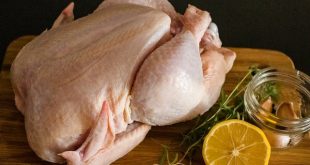Cloiesha Wilson is a mentor for young women within her community, and she’s also a poet. Passionate about sharing the artform of poetry with others, Wilson is an advocate of freedom and self expression. She says poetry can be a device for healing, self-expression and exploration.
Wilson has agreed to share her top tips and tricks with us about how to become a better poet, and a better writer overall. No matter your discipline or your level of commitment to writing and poetry, you communicate every day. For this reason, it’s important to learn how to become a better writer overall.
Cloiesha Wilson’s love of poetry started when she was just 10 years old, and later developed into a passion that she took seriously within a few years. Honing in on and developing her craft for the past decade or so, Cloiesha Wilson has advice to share with others about how to become a better writer and a better poet.
One of Wilson’s main tips is to read, and to read as widely as possible. “I put emphasis on reading because reading has a huge impact on a writer.”
“The majority of what you read and the particular authors that you read will guide you in the direction of what kind of writer or poet you want to be,” says Wilson.
Cloiesha Wilson’s next recommendation is to write in a comfortable place.
“A writer needs to find out which environment they are most comfortable in.” says Wilson. “You have to be in a comfortable space in order to set the tone of your work”
Cloiesha Wilson says that it often takes a certain environment and mood to set the tone.
Furthermore, Wilson recommends reading what people consider to be the great classics.
For aspiring poets or poets who are developing their craft, Wilson recommends reading the works of Langston Hughes, Maya Angelou, John Milton, TS Elliott, William Blake, Shakespeare, Emily Dickinson, Rudyard Kipling and Edgar Allan Poe.
For any other form of writing, she recommends getting familiar with the following authors: Charles Dickens, F. Scott Fitzgerald, Virginia Woolf, WEB Dubois, James Baldwin, Alice Walker and Toni Morrison.
While it’s important to read widely and to keep an open mind to develop your craft as a poet and writer, it’s also important to practice.
Part of practicing, according to Wilson, is to read even more. More than you think is necessary. In fact, you should be reading absolutely everything you can and taking note of the different styles you encounter.
“I read anything I can get my hands on. Whether it’s news articles, dictionaries, any sort of books despite the genre, or even gossip blogs,” says Wilson.
Cloiesha Wilson also wants to share a practical piece of advice with aspiring poets and writers: learn literary devices.
“I suggest you look up literary devices and study them because most poets and most writers use some form of literary devices in their work,” says Wilson.
“Even if it’s just metaphors and similes – use them.”
 News Los Angeles Business, Info & Events
News Los Angeles Business, Info & Events

